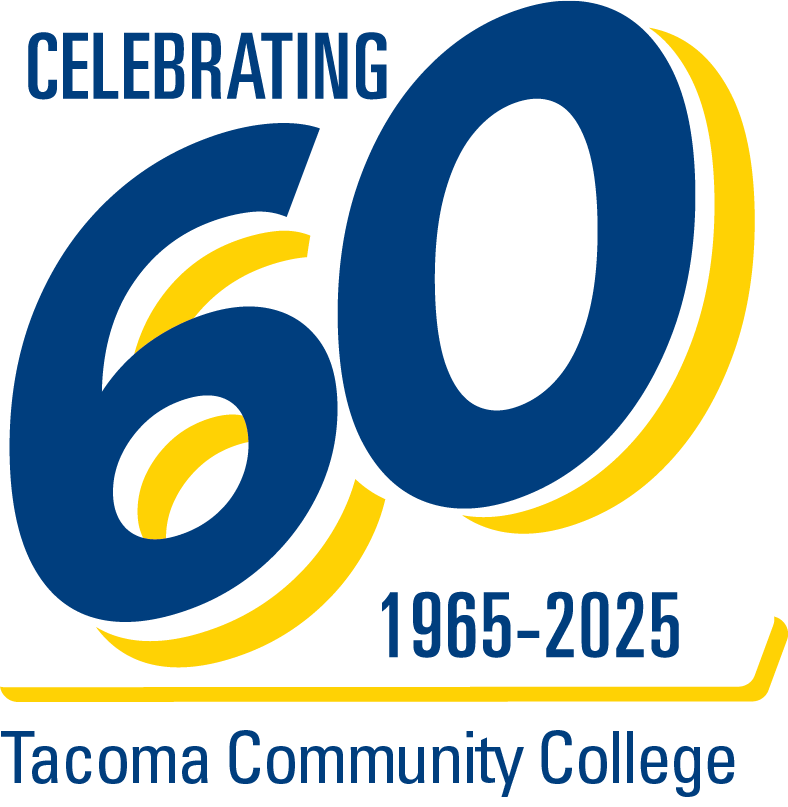Branch Campuses
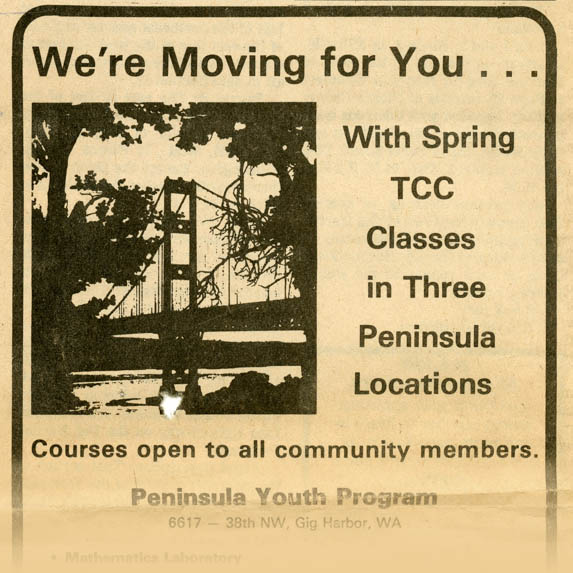
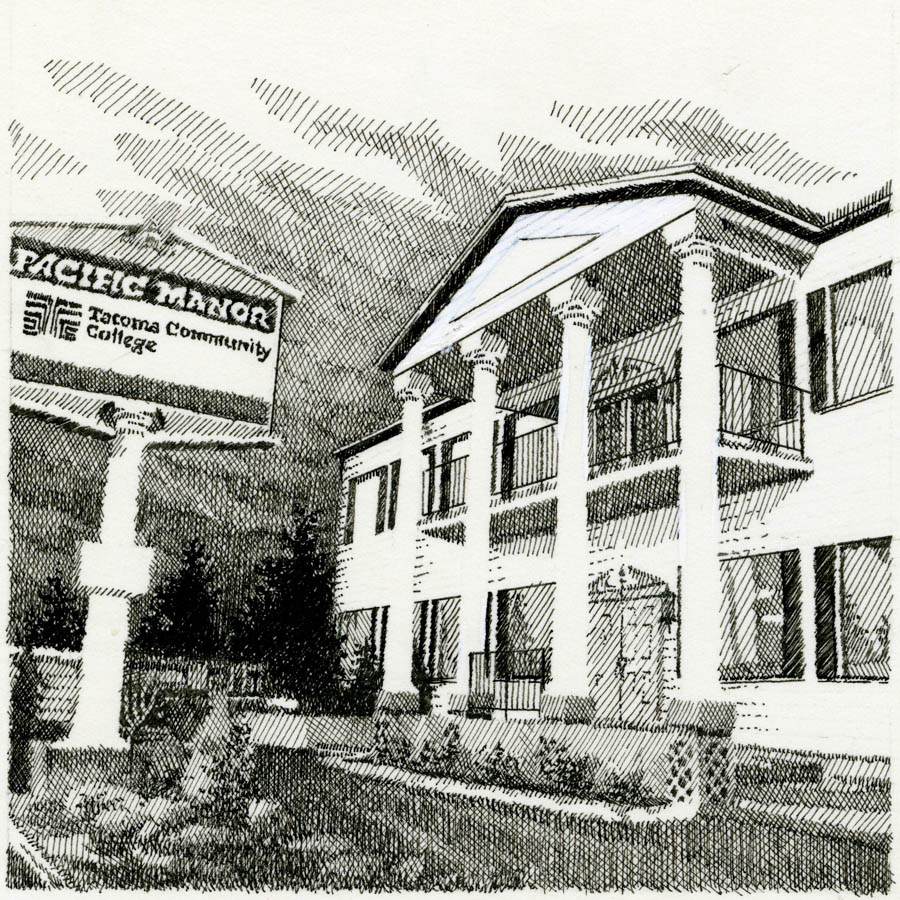
TCC’s earliest off-campus venture was a unique program at the McNeil Island Federal Penitentiary in 1968, with curriculum for both staff145 and inmates.146 Beginning in 1969, TCC offered some of its popular Community Service Program (non-credit) courses at Peninsula High School in partnership with the school district,147 which led to the Adult Evening School’s opening in 1971.148 In 1974, TCC helped support the district’s education program at the new Purdy Women’s Treatment Center.149
TCC's expansion of satellite locations in the late 1970s was promoted with the campaign slogan, "We’re moving for you" (left image). TCC opened its first extension campus in 1980, the Southeast College Center, in southeast Tacoma, but this location was short-lived (right image).
TCC embarked on a major expansion of satellite campuses in the late 1970s. The college partnered with area high schools to host courses, and began pursuing new spaces around the city and south sound to increase accessible offerings to a broader range of learners.150 Some of these centers built on existing programs and relationships, such as those co-run and co-offered with the Peninsula School District. By 1976, the college touted extension programs at McNeil, Purdy, McChord Air Force Base, Fort Lewis, and at the County City Building in Tacoma,151 including opening courses to community members outside of Purdy’s residents152 and McChord’s personnel.153 Courses at the Eastside Boy’s Club were added shortly after in 1978.154
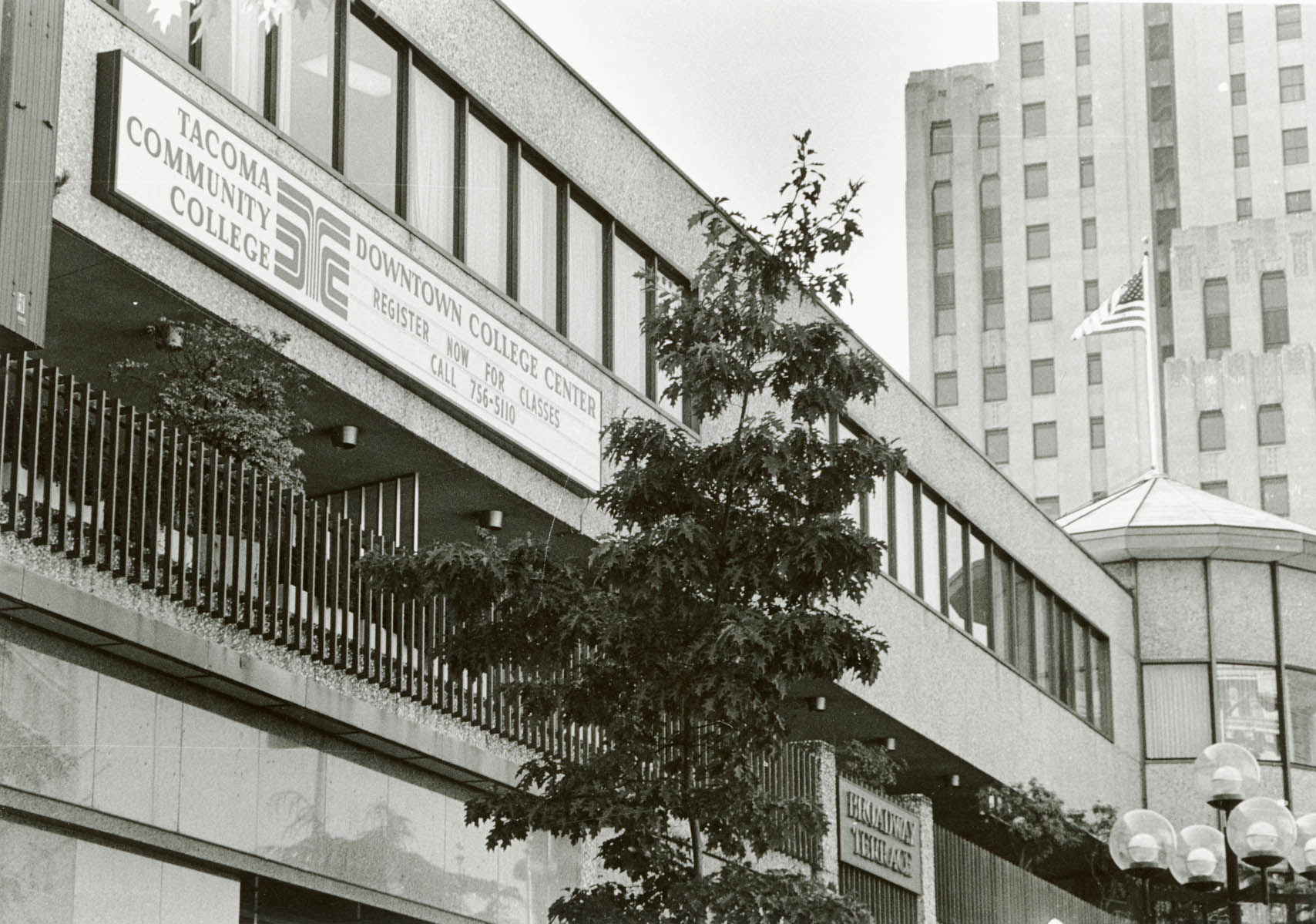
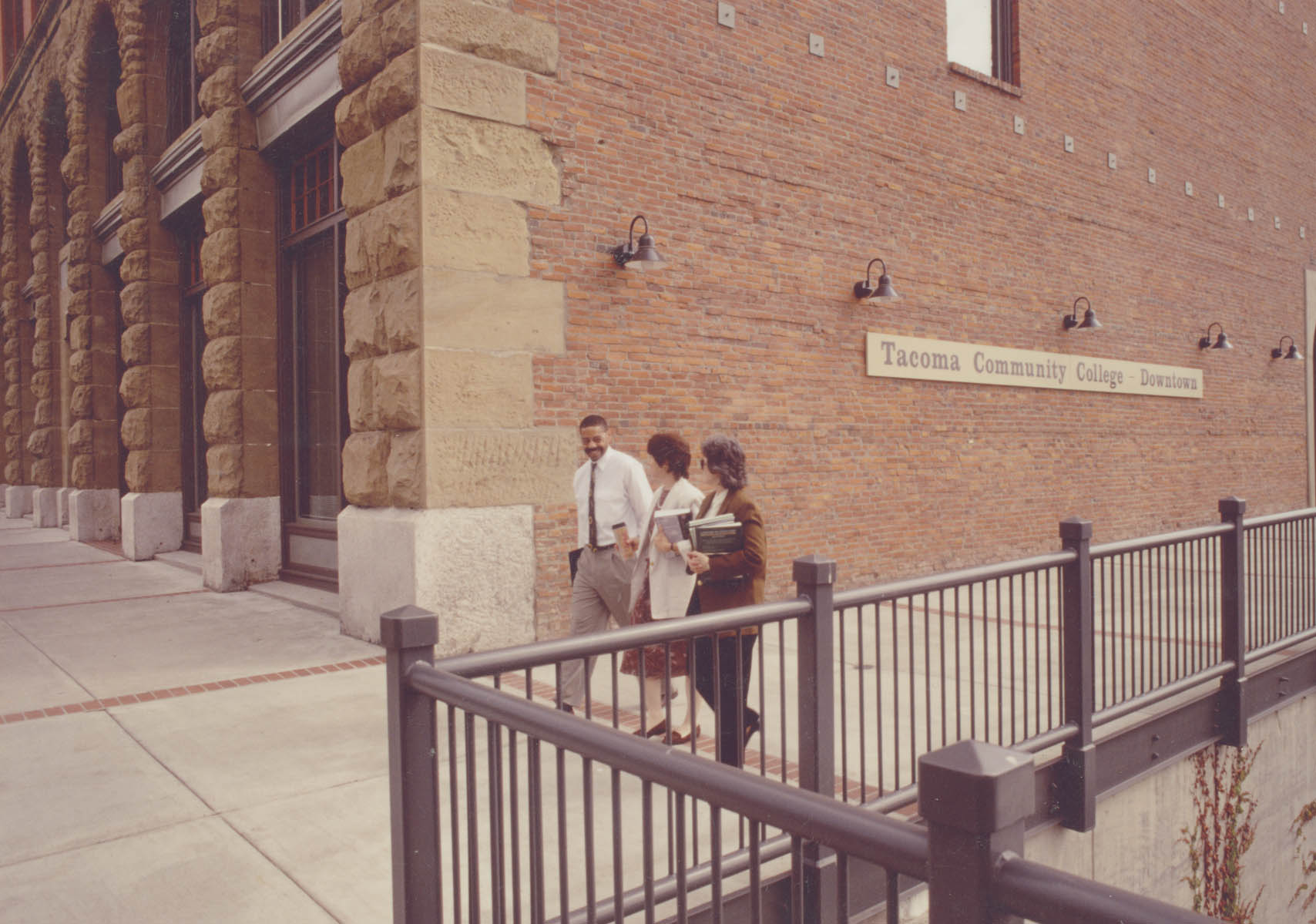
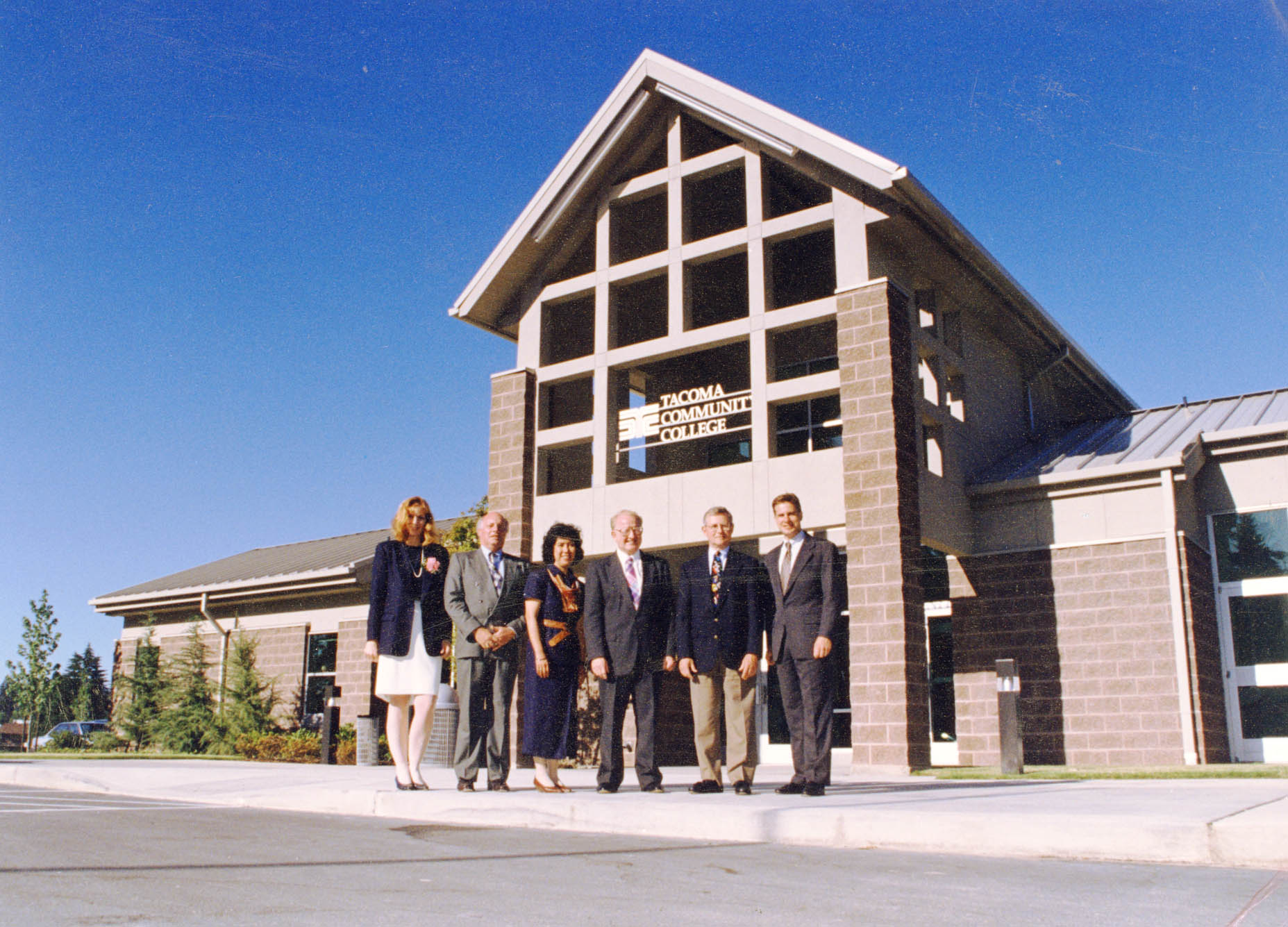
TCC opened its first extension campus in September 1980, the Southeast College Center, in southeast Tacoma.155 The most major additions came in 1981: the Downtown Center opened in January, and the Peninsula College Center in March. When the Peninsula College Center outgrew its facilities, it moved a short distance away into a new 13,000 square foot building in 1995 and became TCC Gig Harbor.156
Many of these locations would close over the years due to consolidation and the changing educational landscape, but Gig Harbor has persisted as an essential campus of the college.
Corrections Programs
Almost from the very beginning of the college, TCC was involved in providing educational opportunities for learners in correctional settings. In 1966, McNeil Island Federal Penitentiary staff first traveled to TCC to attend courses,157 and in 1968 the college created structured programs for both staff and inmates: a degree-granting Behavioral Science Institute for corrections staff158 and an Associate of Arts (AA) degree program for McNeil inmates159 in 1968. At the beginning of the inmate program, TCC instructors would travel to the island once a week to teach classes, and McNeil students would study from supplemental materials in the prison’s library the rest of the week. By 1975, around 30 classes were offered five nights a week,160 and enrollment averaged around 100 students per year,161 making the program "one of the largest total educational programs in the U.S. Penal System."162 When the penitentiary closed in 1980, almost 1,000 men had completed an educational program through these services.163
Meanwhile in the mid-1970s, TCC began offering courses at the Purdy Treatment Center for Women (now the Washington Corrections Center for Women (WCCW)), which opened in 1971. Originally a partnership with the Peninsula School District, TCC fully assumed responsibility for the education program at Purdy in July 1979.164 Initially courses were geared toward the treatment center’s residents, but as the program expanded in 1976, TCC also opened enrollment to wider community members,165 making Purdy one of TCC’s many extension centers in the 1980s.
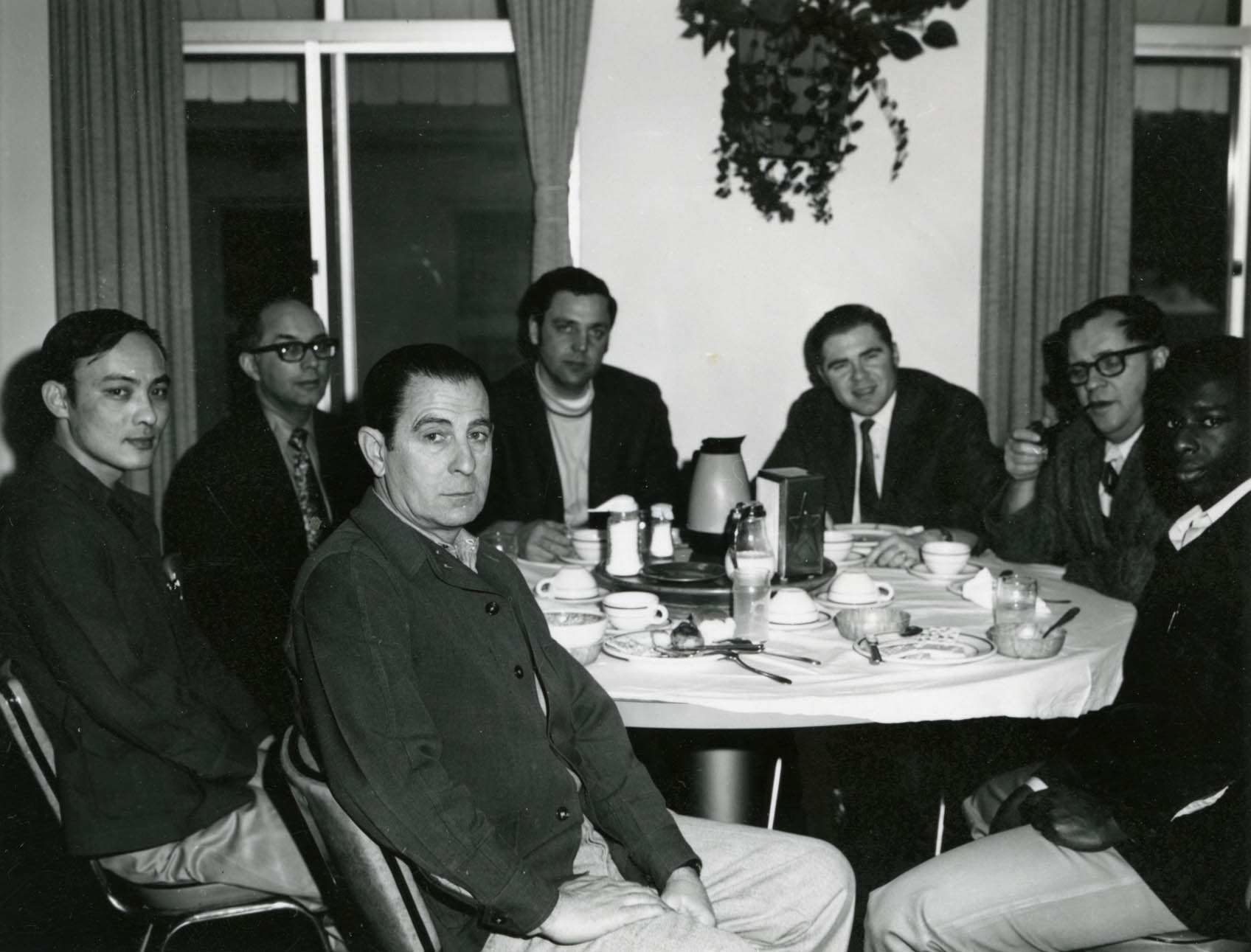
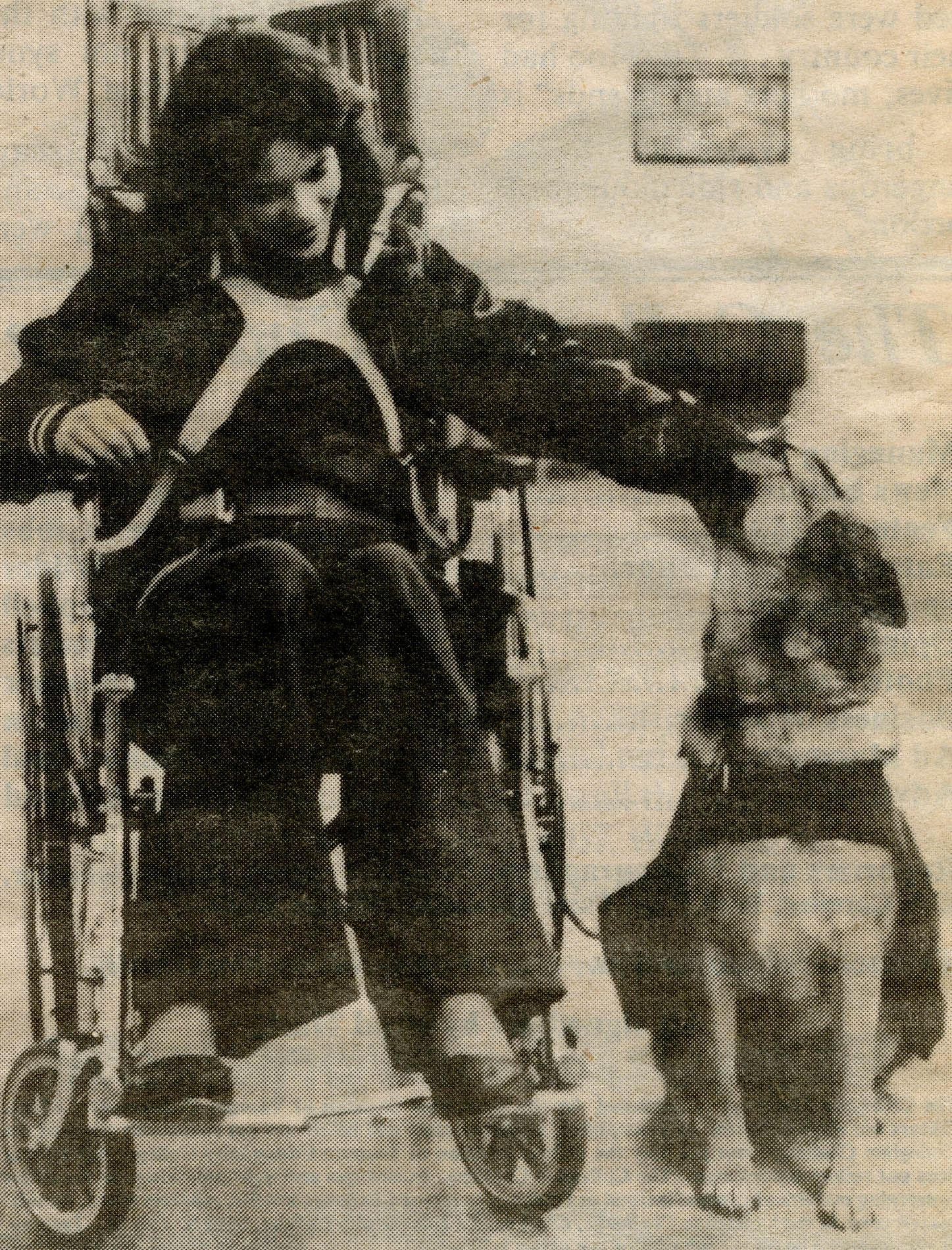
Prison Pet Partnership Program
In 1984, the unique Prison Pet Partnership Program was launched, which trained Purdy residents as dog trainers, then assigned them dogs to train as service animals for people with disabilities and chronic illness.167 The program was a collaboration between TCC, the Washington State University People Pet Partnership Program, and Purdy,168 and the dogs were often rescues from the Tacoma-Pierce County Humane Society.169 Animals in the program went through an intensive training process before being placed with individuals and organizations such as the Veteran's Hospital.170 An additional program, Paroled Pets, gave Humane Society animals likely to be euthanized a second chance at adoption by placing them in a three-month training program at Purdy. Discounted training from the Washington Dog Obedience Council encouraged new adopters to continue training the dogs after leaving Purdy.171 In later years, students could earn pet care technician, groomer, trainer, and veterinarian assistant certificates.172 The Prison Pet Partnership Program at Purdy is credited as the first of its kind, and the inspiration for numerous similar programs around the world.173
TCC maintained its existing education program in partnership with the Washington State Department of Corrections when Purdy became the Washington Corrections Center for Women (WCCW). In the early 2000s, TCC began an education program at the Mission Creek Corrections Center in Belfair.174 One of the most popular programs at both facilities was the horticulture/floriculture program, in which students helped grow approximately 15,000 pounds of produce in its gardens for meals and designed flower arrangements for the Governor’s mansion and Puyallup Fair.175 Both corrections programs continued until 2024.
